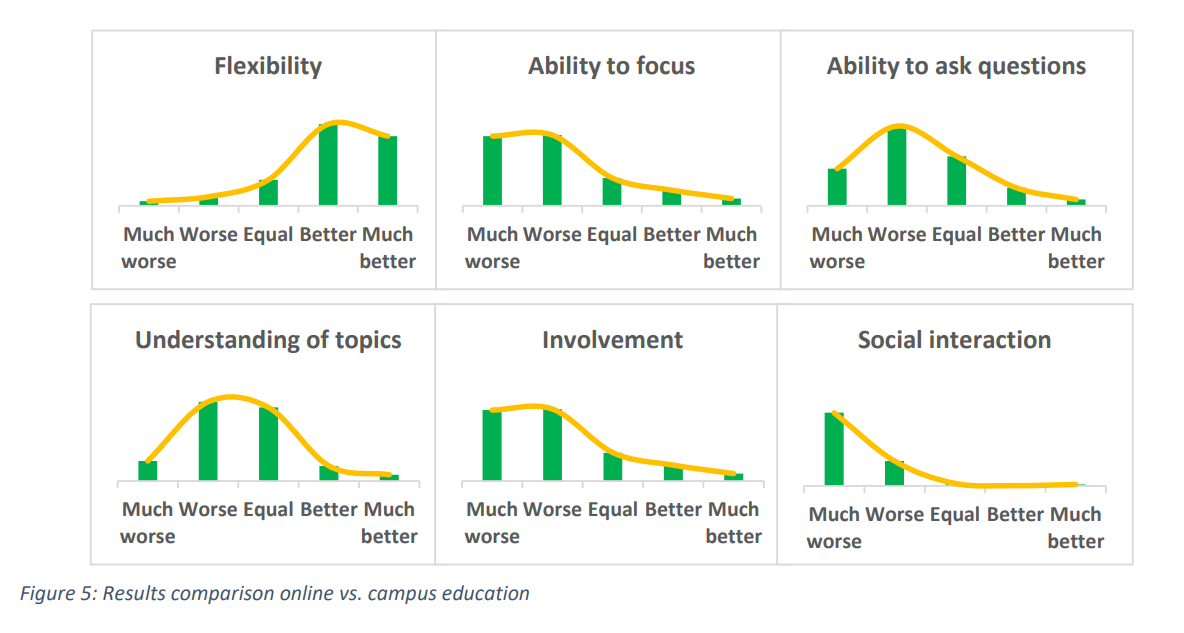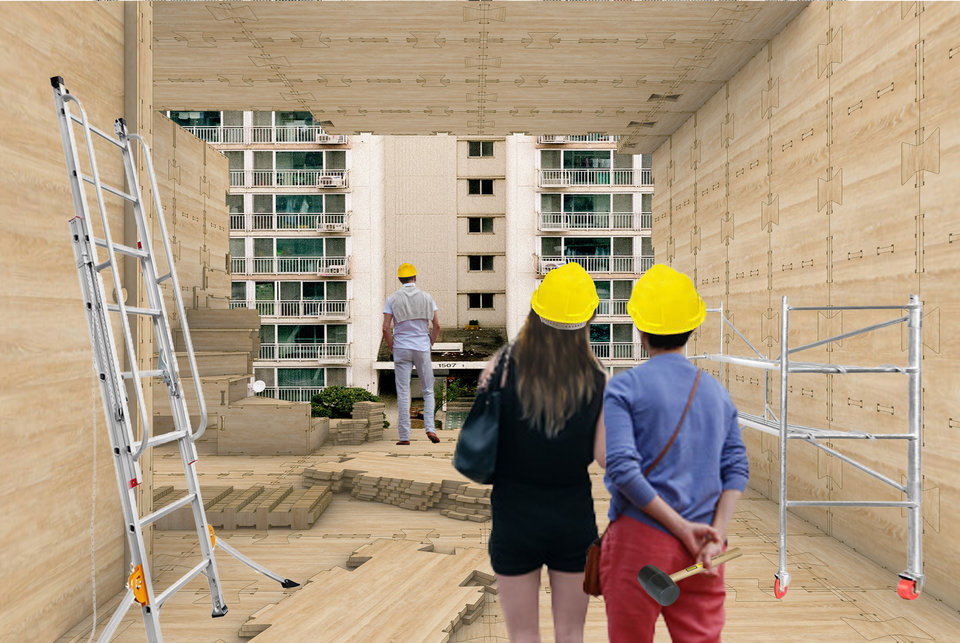Online education: Burden or Blessing? Find out what students think!
Every six months, the student council party ORAS, together with its association, conducts a survey among TU Delft students. This November the theme was "Online education: Burden or Blessing?” to provide insight into how students experienced online education during the pandemic. What lessons can we learn from this period? What will we take with us when the world opens up again and what aspects would we rather leave in the past? This article highlights several findings of the full report of the survey.
In total, the survey was filled out by over 2000 respondents from all faculties. This group consists of both bachelor, master, switch and exchange students. On average students rate online education at TU Delft with a 6.8/10 spend on average 3.3 days on campus.
About online lectures
Of all the students that participated in the survey, 97% reported to watch lectures. Based on this it appears that your (online) lecturing efforts are being valued. Next, it was asked how students preferred to follow lectures. It was found that 63% of participants prefer to attend lectures on campus, and that 23% watches recordings afterwards.
Social Interaction is valued
When students were asked about the comparison between online education and on campus education, they reported that in online education social interaction is much worse. Although this is not surprising, it is still very concerning. This raises the question how to improve social interaction in online education?
Surprising discrepancy
One of the most unexpected findings is that students, on average, reported to experience less understanding of the material, which is surprising given the fact that the amount of study credits per student has increased during the period of online education
What students want for Online Education
Students were asked what TU Delft could facilitate more in the area of online education. It was found that a majority of the students (1072) would like to see more recordings. Additionally, the results show that students would like more online self-assessments (873 students) and more short knowledge clips (740 students) which is in line with the developments in the field of blended learning.
Online Education: Burden or Blessing?

Flexibility is seen as a ‘blessing’ of Online Education (See figure above; numbered Figure 5 in the original report). Students indicate that in case of illness, or in terms of convenience, they prefer online education over education on the campus. It was also found that activities outside the study programme, such as work or extracurricular activities, are also considered as reasons for choosing online education. However, in other dimensions (Figure 5) campus education is considered better than online education.
This raises some interesting questions.
-
To what extent should we give students the autonomy to choose their own study rhythm and should teachers accommodate students in this? What role does online education play in this balance?
-
Does flexibility lead to improved and deeper learning?
-
How can the blessings of both online and on-campus be combined to support the learning process?
These questions will be discussed with Academic Director of the Teaching Academy Annoesjka Cabo, Vice chairman of the student council faction ORAS Clara van der Heijden, and Blended Learning Developer of the Applied Sciences faculty Marvin Soetanto in a podcast format hosted by the Teaching Academy.
Are there any questions that pop up in your mind which we can ask to our podcast guests?
Let us know by emailing your questions to TeachingAcademy@tudelft.nl.
